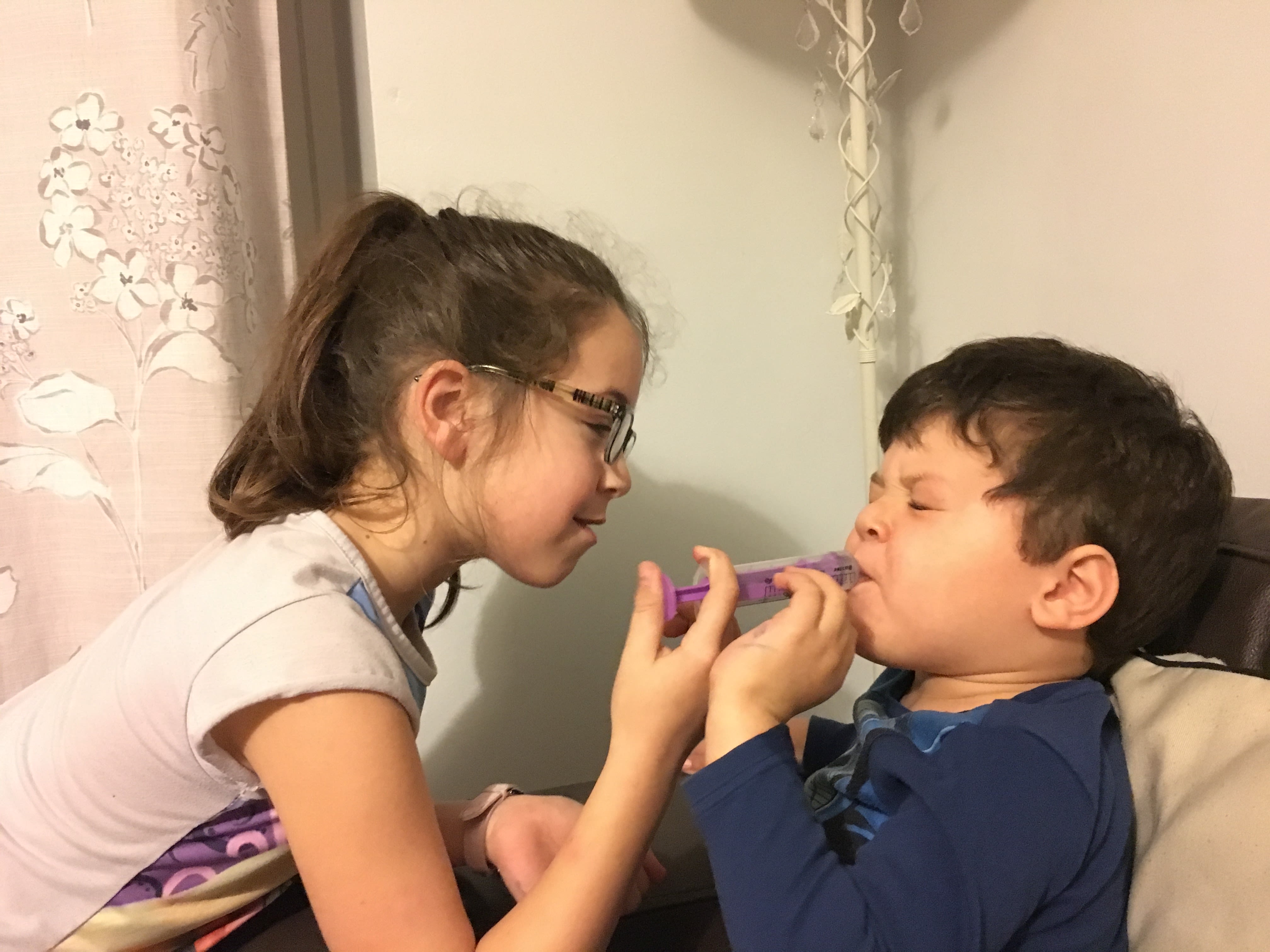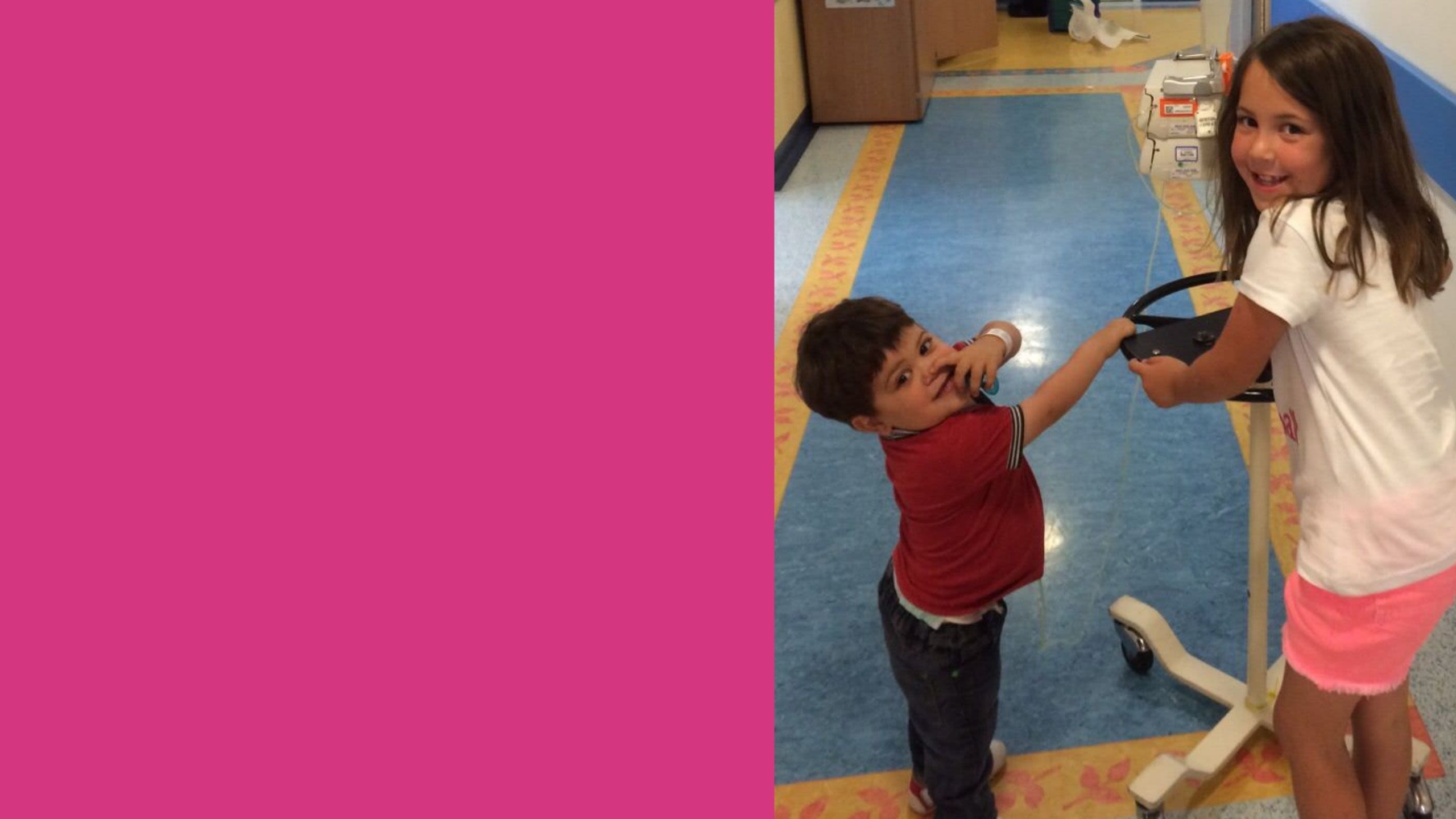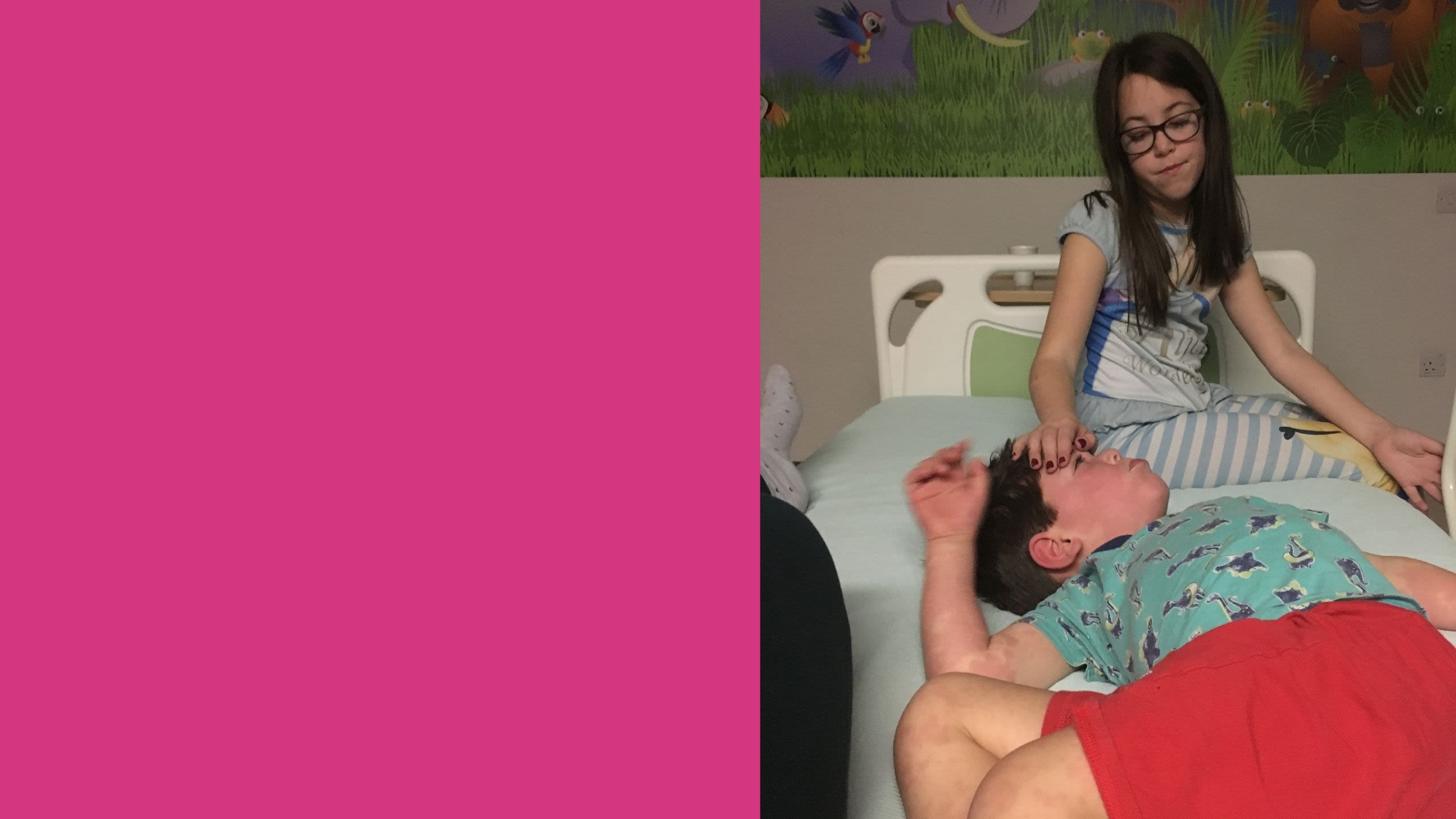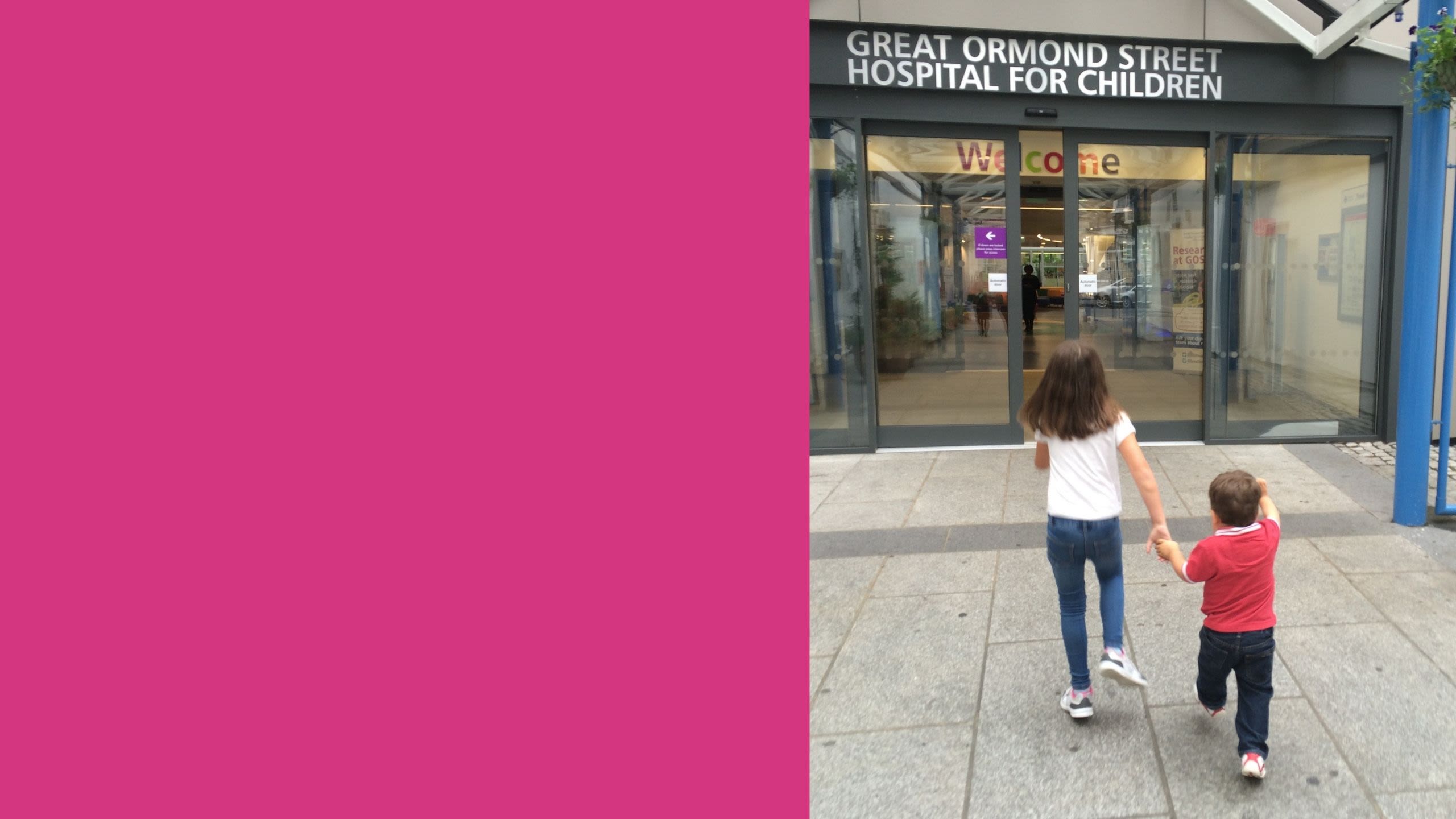Oliver's story

Oliver was diagnosed with cancer at the age of two and spent over a hundred days in hospital during the first year of treatment. Much of this was because of illness caused by his low immunity. Now age 11, he is on a long-term cancer trial which is allowing him to live a relatively normal life.

Oliver loves playing football
Oliver loves playing football
Oliver's illness has had a huge impact, not just on him but the whole family. Here, his sister Macie, 16, and mum, Danielle, explain more.
Macie's memories
My eleven-year-old brother Oliver has a rare cancer called Langerhans Cell Histiocytosis, which is where Langerhans cells, normally found on our skin, spread to other parts of the body and attack them. In Oliver’s case, when he was 2 years old, the LCH attacked his bone (eating away small holes in his skull), his gut, his liver, spleen and skin, by causing open sores under his arm pits and severe cradle cap.
In March 2015, after a year of chemotherapy, Oliver finished his treatment. We thought that was the end of it. Unfortunately, just weeks later, the LCH took over again. This time it had spread to Oliver’s liver, spleen and the soft tissue around his eye, dangerously close to his brain. He then started stronger chemotherapy, but the week of his third birthday he suffered an allergic reaction to the drugs and had to spend a week in hospital. He was very poorly and even had to go in an ambulance! He spent his birthday in hospital, which was really sad to see.
Being a sibling
I was only 6 when Oliver was first diagnosed and so can’t remember it much! Oliver had a portacath fitted and started chemotherapy at Addenbrookes Hospital in Cambridge. During this time, I would spend weeks at a time at my Nan and Grandad's house, while mum and Oliver were in hospital. This was really difficult. I remember one summer holiday staying at a Sick Children’s Trust house at Addenbrookes so we could take Oliver for his chemotherapy drip every day for a week. We then did some fun things in the afternoons, like going to the zoo. I liked to play with Oliver in hospital and keep him entertained – I would sing to him and do dance shows! I also liked to help wheel his chemo drip stand around the ward.
His chemotherapy had to be taken with a syringe. He didn’t want to try it at first, but would let me give it to him. Also, he had to have cream on his skin each evening and he liked me to do that with him, too.
When Oliver had play therapy to get him ready to have an MRI where he would be awake, I went along, too. I wanted to show him it was okay. I did all of the steps first so he could see it wasn’t scary.
Mental health
Having mental health support would have made a huge difference to Oliver. He's really struggled because of all the things he's been through. It would have helped me as well, particularly when he was in a bad way. I would have liked to talk to someone I could be honest with, about home, school, feelings, rather than worrying my mum. Being in hospital and seeing and hearing what Oliver was going through was very scary. I hope the team building Cambridge Children’s Hospital will think about how to help siblings with anxiety and therefore prevent more problems within families.
"I think our family’s journey may have been smoother if we’d had mental health support right from the start."
Oliver has been on treatment for nine years now. It's all the two of us really remember. It has been tough and may be for many more years, but I will always be there for Oliver and I am so, so proud of him.




Oliver and Macie enjoying lunch together in hospital, but there was often nothing for their parents to eat
Oliver and Macie enjoying lunch together in hospital, but there was often nothing for their parents to eat

Macie has helped look after her brother throughout
Macie has helped look after her brother throughout

Macie and Oliver spent long periods of time together in hospital
Macie and Oliver spent long periods of time together in hospital

The children entertained themselves with games
The children entertained themselves with games
Danielle's reflections
Oliver now has appointments every three months for ultrasounds, including his heart (known as Echo), ophthamology, and bloods, as well as an MRI once a year and meetings with his consultant. I work full time, so juggling all these appointments still has an impact on us as a family. However, unless Oliver gets very unwell, he can be treated at home.

Danielle with Oliver and Macie, at home
Danielle with Oliver and Macie, at home
Research
Tests in August 2015 revealed that the chemotherapy wasn’t working as well as it should be. However, the following month Oliver qualified for a clinical trial at Great Ormond Street Hospital, which is he still doing well on today. There was a lot of travelling to London for check ups but all our travel was paid for and Oliver was really well taken care of throughout and checked regularly. The décor at GOSH was colourful and fun, which made it a much less scary place for the children.
"Going on this trial gave us hope and it has been a much better and less harsh treatment for Oliver. I believe the trial saved Oliver’s life."
Macie interviewed Dr Patrick Tarpey about a new children's cancer trial
Treatment closer to home
It would have made a huge difference to us to be able to receive some care in our local hospital. Cambridge is over an hour’s drive away from us and the roads aren’t great. We need to leave a good hour and a half before our appointments, at least. When Oliver was going through the stronger chemotherapy, there were weeks when we had to travel down every day and sit for hours hooked up to the chemo and then drive back home again. This really took its toll on me and him, as well as his sister Macie who had to be picked up from school and looked after by grandparents.

Being at home, close to family and friends, would have made a difference to Danielle, Macie and Oliver
Being at home, close to family and friends, would have made a difference to Danielle, Macie and Oliver
Hospital school
Oliver was only a toddler when he was going through his harshest treatment. It would have been brilliant to have some early years education as missing out on the pre-school experience had a huge impact.
Because he has fallen through the cracks a bit, Oliver still struggles at school due to all the time he has missed for hospital appointments. He has lower immunity and is still off school poorly a lot more than most children. He struggles to make progress but doesn’t really get any help. A local charity has paid for some tutoring which has been helpful. I do worry about Oliver’s schooling and wonder if there is more that could be done to help children, like him, who miss education because they are in hospital.
Food
On the children’s wards at Peterborough City Hospital and at Addenbrooke’s Hospital, it’s only the child that receives any food. This is very difficult when you are on a ward for long periods. Buying food in the hospital concourse is costly, plus it means having to leave the child which I never wanted to do. Family can bring in food for you to heat up, but because Addenbrooke’s is so far from home this wasn’t practical.
"A lot of times I just ate whatever Oliver had left. Ideally food for parents should be provided to your child’s room so you don’t have to leave them - and it shouldn’t be expensive."
Oliver also had a number of procedures where he had to fast for long periods, sometimes twelves hours at a time. It would be great if clinicians could come up with a way that children don’t have to go without food for so long, as this had a huge impact on Oliver's mental health.
Thank you Macie, Oliver and Danielle for sharing your story

If you would like to get involved in the Cambridge Children's Hospital project, we would love to hear from you.

